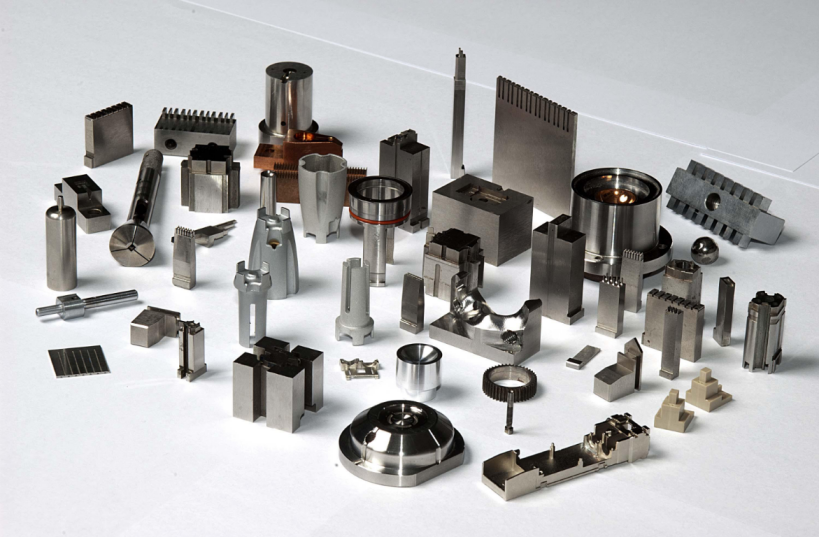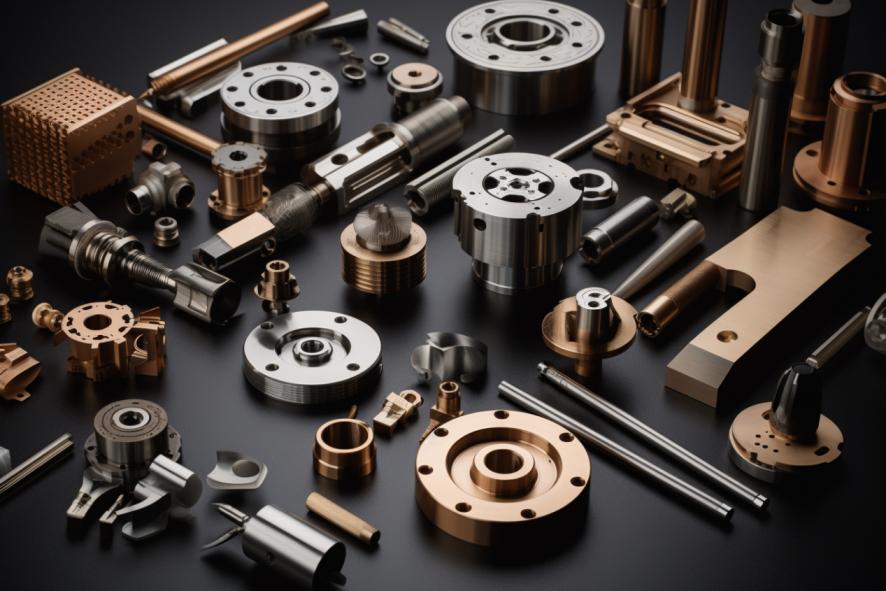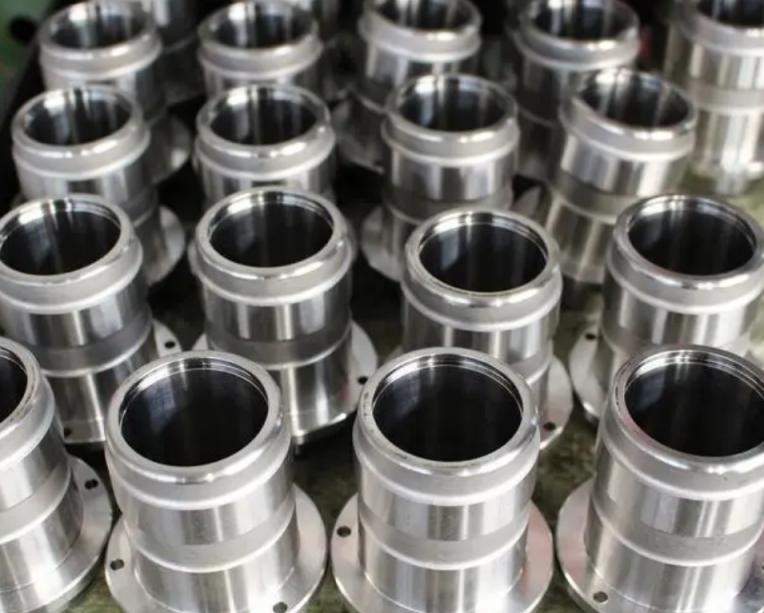Blog
We regularly update articles related to the prototyping and manufacturing industry. You’re welcome to check our previous blogs and subscribe to our newsletter.
How Precision CNC Parts Help Reduce Waste and Improve Sustainability
Introduction: Ushering in a New Epoch of Manufacturing Efficiency
Picture a scenario where manufacturing not only yields superior-quality products but also actively diminishes waste, fostering a more sustainable and environmentally conscious future. As industries across the globe increasingly endeavor to adopt eco-friendly practices, precision CNC (Computer Numerical Control) machining is emerging as a pivotal force in transforming sustainable manufacturing.

Armed with the capability to fabricate intricate and complex parts while simultaneously minimizing material wastage, CNC machining is empowering manufacturers to lower their ecological footprint, all while preserving unmatched quality. Yet, the pertinent question remains: in what specific ways do precision CNC parts facilitate the reduction of waste and contribute to sustainability efforts?
Precision CNC Parts: Integral to Contemporary Manufacturing
Precision CNC components serve as indispensable elements across a broad array of industries, spanning sectors such as aerospace, electronics, automotive, and medical devices. Louis Machine, recognized as a leading supplier of precision CNC parts, is spearheading efforts in providing components crafted from resilient, high-quality materials. These offerings, which encompass bolts, nuts, washers, pins, springs, dowels, and more, are meticulously manufactured through CNC processes that emphasize precision, longevity, and environmental responsibility.
Reducing Material Waste Through Precision
Minimization of Scrap Materials in the Production Process
One of the paramount advantages of precision CNC machining lies in its inherent capacity to significantly reduce material wastage. Conventional manufacturing techniques frequently necessitate the use of surplus material to account for potential errors or adjustments, which results in higher amounts of scrap. Conversely, CNC machining employs advanced computer-aided design (CAD) software to construct exact and accurate models of parts, which are then translated into precisely controlled machine movements, ensuring only the necessary material is removed.
For instance, when Louis Machine fabricates precision carrier plates or metal frames used in mobile devices, its CNC machines are programmed to adhere to exact specifications. This precise material removal process leads to substantially reduced waste. In a world where sustainability is increasingly prioritized, the reduction of scrap material in this manner equates to a decreased environmental impact.
Optimal Utilization of Raw Materials
CNC machinery also enables manufacturers to maximize the use of raw materials. Louis Machine sources materials such as stainless steel, copper, aluminum, and various plastics from reputable suppliers who adhere to stringent quality controls. By optimizing the cutting process, CNC machining ensures that these materials are used with maximal efficiency, minimizing the necessity for excess inventory and curtailing the likelihood of overproduction.
Take, for instance, the manufacture of precision hardware components like bolts and nuts. The production process necessitates rigorous calibration to eliminate unnecessary waste. Each part is crafted with precision, achieving accuracy levels as precise as +/−0.002mm. This meticulous approach ensures that every unit produced is of the highest quality, thereby reducing the need for reworking or scrapping defective components.
Achieving Precision in Mass Production
The benefits of CNC machining are particularly pronounced in mass-production scenarios. With the use of CNC lathes, automated CNC machines, and turning and milling composite machine tools, companies such as Louis Machine are able to mass-produce metal parts that feature intricate surface textures and exhibit precise dimensional accuracy. This capability is especially critical in industries that demand high-quality components, such as electronics, medical devices, and automotive manufacturing.
When manufacturing at scale, even slight inefficiencies can result in significant waste. However, due to the exceptional accuracy of CNC machining, Louis Machine can produce vast quantities of parts without compromising on quality or squandering valuable raw materials. This precision-driven process is vital when working with costly materials, as it contributes to cost reductions while simultaneously promoting environmentally sustainable practices.
CNC Machining’s Contribution to Energy Efficiency
Streamlining Processes to Lower Energy Consumption
Precision CNC machining offers benefits beyond material waste reduction; it also plays a crucial role in diminishing energy consumption. Traditional manufacturing methods typically involve multiple stages—such as manual cutting, shaping, and finishing—each of which demands considerable time and energy.
In stark contrast, CNC machines are engineered to execute multiple tasks, including milling, grinding, and wire-electrode cutting, within a singular setup. For example, when producing intricate components like game console handle molds, CNC machines can perform highly specialized tasks such as discharge processing (EDM) and CNC milling with unparalleled precision. This multi-tasking ability leads to significantly reduced production times and less energy expenditure, as machines are not required to halt or restart between processes.

Lowering the Carbon Footprint of Manufacturing
The decrease in energy consumption facilitated by CNC machining directly translates into a reduced carbon footprint for manufacturing operations. Louis Machine, for instance, harnesses advanced CNC technologies to produce components for industries that are subject to stringent environmental regulations, such as electronics and medical device manufacturing. By optimizing production workflows and minimizing energy usage, precision CNC machining enables manufacturers to meet sustainability objectives without sacrificing the superior quality of their products.
Moreover, the precision of CNC machining significantly reduces the occurrence of manufacturing errors, which can otherwise lead to rework or the discarding of faulty parts—further conserving energy and resources in the long term.
Sustainability in Materials: Durability and Recyclability
Utilizing High-Quality, Long-Lasting Materials
A critical facet of sustainability in CNC machining is the selection of high-quality materials that boast both durability and recyclability. Louis Machine, for instance, relies on materials such as stainless steel, copper, aluminum, and composites to produce components capable of withstanding the rigors of demanding applications.
By opting for durable materials, manufacturers effectively extend the lifespan of the components they produce, thereby reducing the frequency of replacements and minimizing material waste over time. In sectors such as aerospace and automotive—where parts must endure extreme operational conditions—precision CNC components made from robust materials are indispensable for both enhancing performance and supporting sustainability efforts.
Recycling and Repurposing Scrap Materials
Although CNC machining is inherently designed to minimize waste, a certain amount of scrap material is unavoidable. However, much of this scrap can be recycled. Metals such as aluminum and stainless steel are particularly well-suited for recycling, as they can be melted down and repurposed, contributing to a circular economy in which materials are reused rather than discarded.
Louis Machine has established partnerships with suppliers who emphasize the importance of recycling and material reuse. Any scrap generated during the CNC machining process can be reintroduced into the supply chain, thereby reducing reliance on virgin raw materials and helping to mitigate the environmental impact of production.
CNC Machining’s Role in Enhancing Product Longevity
Improving Component Durability
Precision CNC machining plays a pivotal role in enhancing the durability of the components it produces. When products are designed to last, fewer replacements or repairs are needed, which directly contributes to reducing waste. For instance, Louis Machine’s precision carrier plates and mold components are engineered to meet strict industry standards with remarkable accuracy, ensuring their prolonged operational lifespan.
The aerospace, medical, and electronics sectors, in particular, stand to benefit from the enhanced durability of CNC parts, as component failures or malfunctions in these industries can have far-reaching consequences. By supplying high-quality, long-lasting parts, CNC machining helps industries reduce their environmental impact while ensuring optimal functionality and performance.

Promoting Repair Instead of Replacement
Another way precision CNC parts support sustainability is by facilitating the repair of products rather than necessitating their replacement. CNC machining enables manufacturers to reproduce exact replicas of worn or damaged parts, thereby extending the lifespan of equipment and decreasing the need for entirely new products. This approach is especially relevant in industries such as automotive and aerospace, where repairing a single component is often a more cost-effective and eco-friendly option compared to replacing an entire system.
Conclusion: Precision CNC Parts as a Cornerstone of Sustainable Manufacturing
In an era where sustainability is of paramount importance, precision CNC machining offers an impactful solution for minimizing waste, optimizing resource utilization, and reducing energy consumption. Companies like Louis Machine are at the forefront of this technological revolution, producing durable, high-quality parts that not only meet rigorous industry standards but also contribute to a more sustainable and environmentally friendly future.
By adopting CNC technologies, manufacturers across diverse sectors can significantly reduce their environmental footprint, lower operational costs, and support long-term sustainability—all while consistently delivering exceptional products that stand the test of time.





